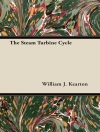This contributed volume explores the achievements gained and the remaining puzzling questions by applying dynamical systems theory to the linguistic inquiry. In particular, the book is divided into three parts, each one addressing one of the following topics:
1) Facing complexity in the right way: mathematics and complexity
2) Complexity and theory of language
3) From empirical observation to formal models: investigation of specific linguistic phenomena, like enunciation, deixis, or the meaning of the metaphorical phrases
Cuprins
Introduction.-The Game of Complexity and Linguistic Theorization.- Continuity in the Interactions between Linguistic Units.- Modeling Language Change.- The Case for Cognitive Plausibility.- System and Structure.- Hjelmslev and the Stratification of Signs and Language.- From Topology to Quasi-Topology.- Fiat Lux versus Fiat Lumen.- Two Ways into Complexity.- Language and Brain Complexity












